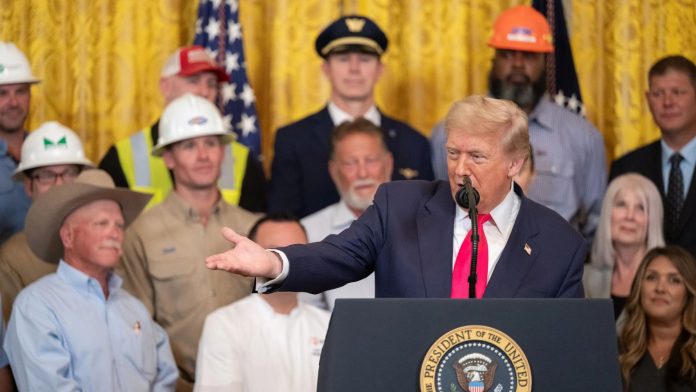On July 4, President Donald Trump signed the One Big Beautiful Bill into law, securing a major legislative victory that locks in permanent tax relief for small businesses, working families, and American manufacturers.
The law makes permanent the 2017 Trump-era tax cuts and preserves the 20% small business tax deduction under Section 199A, which officials say will generate $750 billion in economic growth and create more than 1 million jobs. Without the bill, 26 million small businesses would have faced a top tax rate of 43%.
U.S. Small Business Administrator Kelly Loeffler praised the bill as “a landmark victory for America’s small businesses,” adding that it “cements President Trump’s legacy as the greatest small business champion our country has ever known.”
Key provisions include full expensing for factory construction, equipment, and research and development; an increase in the child tax credit to $2,200; and tax relief for tips and overtime pay, which could save workers up to $1,750 per year. The bill also prohibits the IRS from requiring the reporting of gig economy transactions exceeding $600.
The law protects family farms by maintaining current estate tax exemptions and ends benefits for at least 1.4 million undocumented immigrants, a move Republican lawmakers say will preserve Medicaid for working Americans. It also includes broader fiscal reforms to reduce federal spending and roll back green energy mandates.
Loeffler has been one of the bill’s most vocal supporters. In recent weeks, she toured small businesses in Florida, Indiana, Kansas, Louisiana, Maine and North Carolina to highlight the bill’s projected economic impact.
Congressional Republicans celebrated the bill’s passage, calling it a long-term investment in U.S. job creation and economic stability. Critics, however, have signaled concerns over its budget implications and the long-term effects on the federal deficit.



 ASBN, from startup to success, we are your go-to resource for small business news, expert advice, information, and event coverage.
ASBN, from startup to success, we are your go-to resource for small business news, expert advice, information, and event coverage.